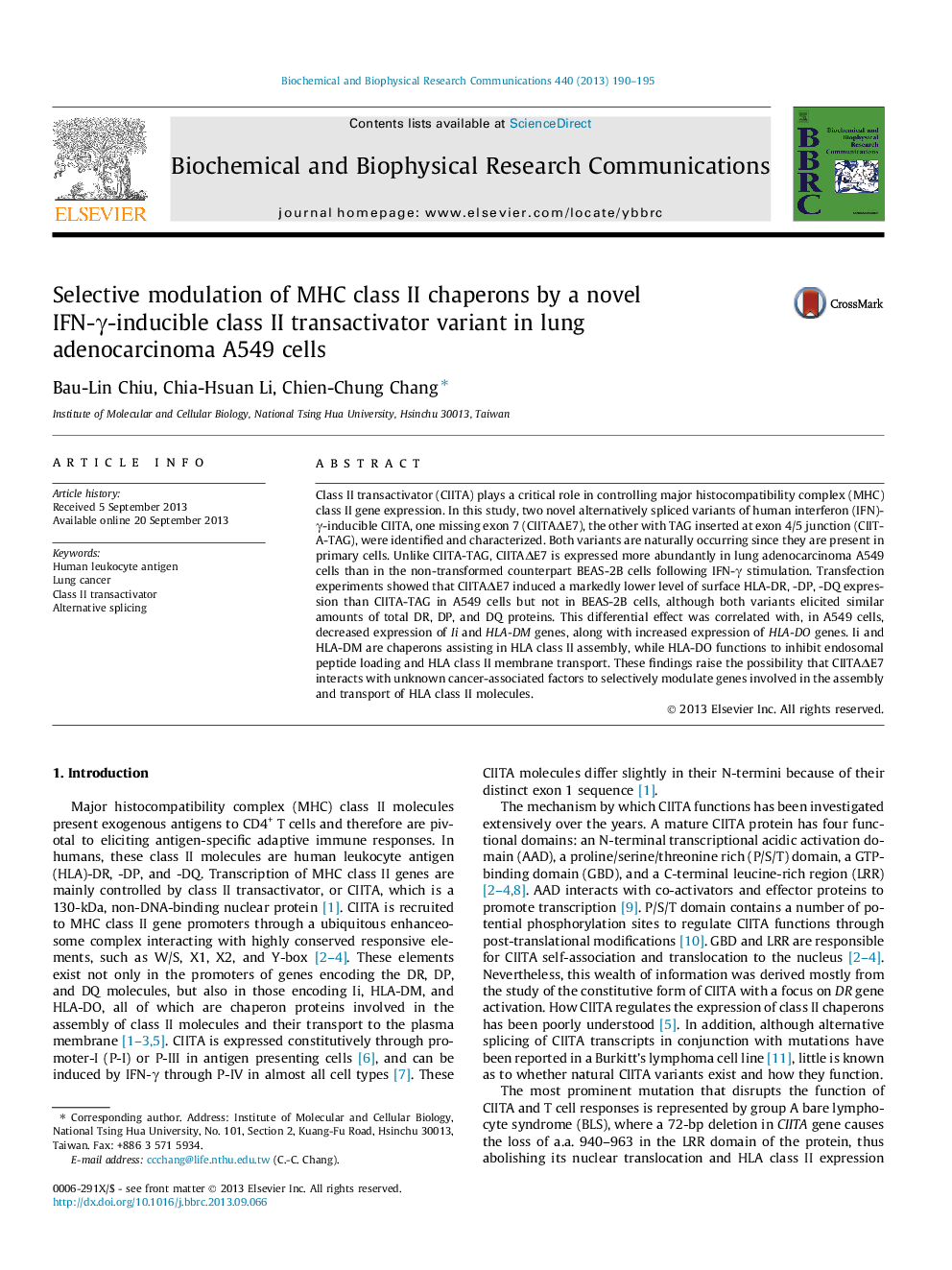| Article ID | Journal | Published Year | Pages | File Type |
|---|---|---|---|---|
| 10757903 | Biochemical and Biophysical Research Communications | 2013 | 6 Pages |
Abstract
Class II transactivator (CIITA) plays a critical role in controlling major histocompatibility complex (MHC) class II gene expression. In this study, two novel alternatively spliced variants of human interferon (IFN)-γ-inducible CIITA, one missing exon 7 (CIITAÎE7), the other with TAG inserted at exon 4/5 junction (CIITA-TAG), were identified and characterized. Both variants are naturally occurring since they are present in primary cells. Unlike CIITA-TAG, CIITAÎE7 is expressed more abundantly in lung adenocarcinoma A549 cells than in the non-transformed counterpart BEAS-2B cells following IFN-γ stimulation. Transfection experiments showed that CIITAÎE7 induced a markedly lower level of surface HLA-DR, -DP, -DQ expression than CIITA-TAG in A549 cells but not in BEAS-2B cells, although both variants elicited similar amounts of total DR, DP, and DQ proteins. This differential effect was correlated with, in A549 cells, decreased expression of Ii and HLA-DM genes, along with increased expression of HLA-DO genes. Ii and HLA-DM are chaperons assisting in HLA class II assembly, while HLA-DO functions to inhibit endosomal peptide loading and HLA class II membrane transport. These findings raise the possibility that CIITAÎE7 interacts with unknown cancer-associated factors to selectively modulate genes involved in the assembly and transport of HLA class II molecules.
Related Topics
Life Sciences
Biochemistry, Genetics and Molecular Biology
Biochemistry
Authors
Bau-Lin Chiu, Chia-Hsuan Li, Chien-Chung Chang,
